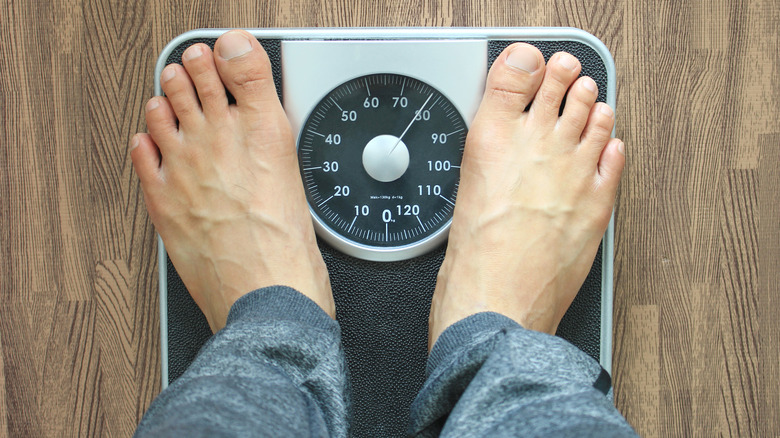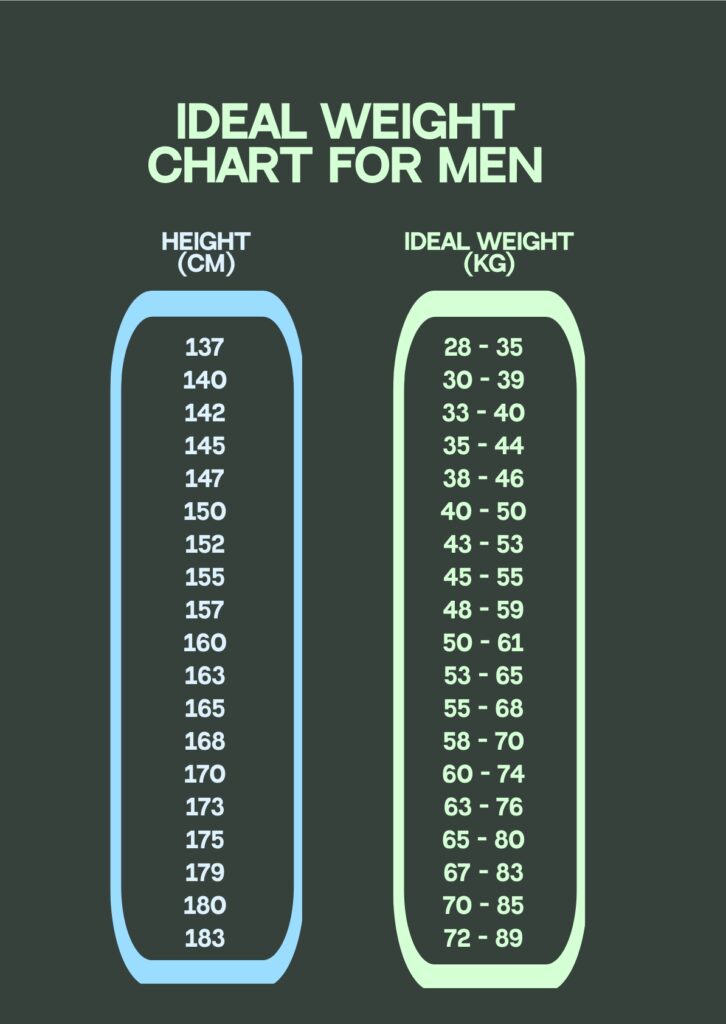Male average weight varies by geography and age group. Other variables, including your height, may also influence a moderate weight range.
The average height is 5 feet 7.5 inches (69 inches), while the average waist circumference is 40.5 inches.
To find out more about the typical weight of men worldwide by height and age, as well as advice on maintaining a moderate weight, continue reading.
How do height and weight relate to each other?
When determining whether your weight is within the healthy range, the BMI isn’t always the best instrument.
The National Heart, Lung, and Blood Institute (NHLBI)Trusted Source has given the following table, which lists moderate weights by height. These ranges have BMIs between 18.5 and 24.9.

Ethnicity
Additionally, men’s typical weight differs by nation and area worldwide. For instance, people in Asia are typically the lightest, whereas North Americans are typically heavier than people in other places.
Age, height, and ethnicity are additional variables that may influence a man’s optimum weight.
To determine your optimum body weight based on your height, gender, and age, you can utilize an ideal weight calculator.
Ideal Weight Chart
A goal weight determined by your height and gender is your “ideal” body weight. You can estimate your “ideal” body weight range using the chart below.
To be qualified for bariatric surgery, one must meet a few of prerequisites. One prerequisite is that you must be around 100 pounds overweight.
- Your bariatric healthcare team will decide on your post-surgery target weight.
- Following surgery, the majority of individuals lose between 50 and 80 percent of their excess weight.
- For patients having bariatric surgery, the weights in this table are not goal weights.
For example, if a woman is 5’4” and weighs 320 pounds, her “ideal weight” could be between 108-132 pounds. She is approximately 200 pounds above her ideal weight and could lose 100 pounds or more with weight loss surgery.

Consult your doctor if you need to reduce your weight. They can assist you in creating a weight loss strategy that is both safe and doable.
Advice for Managing Your Weight
So, what is a man’s healthy weight? The optimal weight for males varies depending on your height and BMI.
Although BMI isn’t the best indicator of general health, it can help you determine whether you’re within a healthy weight range and at risk for diseases linked to obesity.
Generally speaking, those with a BMI in the obese range should endeavor to reduce their weight, while people in the overweight range should try to avoid gaining weight. Nonetheless, a medical professional can offer tailored advice on how to manage your weight.
Once more, BMI is only one indicator of overall health. Additionally, keep in mind that a 5’10” man’s typical weight will be different from that of a six-foot man and a person over six feet.
What Has Changed in Men’s Average Weight?
Measurements of height, weight, head circumference, and BMI have been taken in the United States since the middle of the 1950s. Not unexpectedly, they have shown that men have been gaining weight over the years.
According to a 1959 survey, the average weight of male adults in the United States (those aged 20 and up) varied from 151 pounds for a man who was 5 feet 4 inches tall to 186 pounds for a man who was 6 feet 1 inch tall.
The shorter man’s BMI would be roughly 26 at those weights, whereas the taller man’s would be 24.5. The shorter man would be overweight by today’s standards, while the taller man would be on the higher end of the normal weight range.

The average male weight in the United States from 1960 to 2016
The largest increases were observed in elderly men between 1960 and 2002.
- The average weight rise for men between the ages of 40 and 49 was 27 pounds.
- A 28-pound gain was recorded by men aged 50 to 59.
- There was a 33-pound gain among men aged 60 and above.
However, the largest weight gains were seen in younger men between 1999 and 2016.
- The average weight rise for men aged 20 to 39 was 11 pounds.
- Men between the ages of 40 and 59 gained almost 6 pounds.
- An increase of about 7 pounds was observed in men aged 60 and above.
Conclusion
The weight decrease was accomplished by the researchers without the use of medication or surgery. Rather, the males in the group increased their weekly physical activity and reduced their daily caloric intake by 300. For men seeking solutions for ED and other physical issues, the eat-less-move-more method may be quite helpful.
Men who lose weight may also benefit from better mental health and higher self-esteem. Overall, if you want to stop having ED, these are fantastic options.